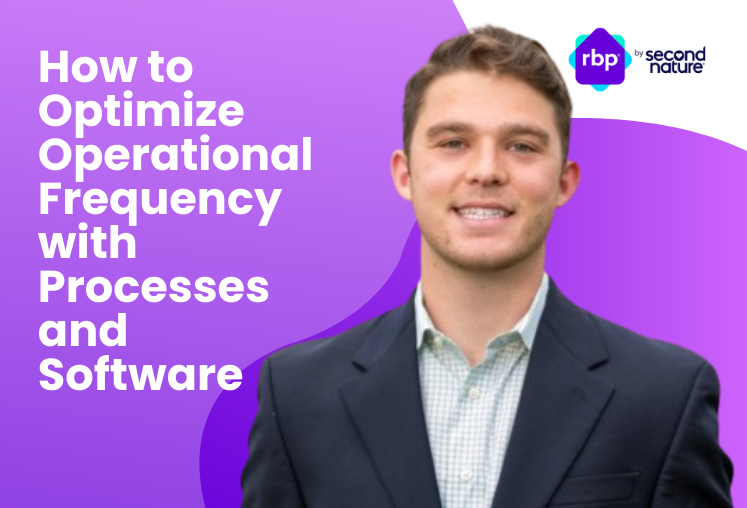A recent study by Orchid on property manager insurance found that while 80-90% of property managers require residents to carry insurance, only about 41% of residents actually have or retain that required coverage.
Kind of crazy, right? Especially when you consider that that gap represents a huge exposure to risk for both the property manager and their investor.
Insurance for property managers is a must – it protects not just you but your investor’s assets and your resident’s safety. At Second Nature, insurance is so important to us that we wrap an insurance product into our resident benefits package.
So, today, we’re looking at property manager insurance and why it’s so important to get into the nitty-gritty details.
Key Learning Objectives:
- What is property management insurance?
- Why do property managers need insurance (risks and liabilities)?
- What types of insurance are important for property management companies?
- Should property managers require residents to have insurance?
- How do you choose the best property manager insurance?
- How much does property management insurance cost?
- Examples of property management insurance coverage claims
- What our tenant liability insurance product can cover

What is Property Management Insurance?
Property management insurance is protection for property managers against the risk of damages or claims against you from residents or clients.
In other words, insurance for property managers ensures that you, as the professional property manager, are covered in the case of liability claims, legal proceedings, or losses from perils like fire, vandalism, or burglary.
Property manager insurance can also include tenant liability insurance, or your leases may require that renters are insured in some form. We’ll talk more about tenant liability insurance below.
Why Property Managers Need Insurance
Property managers are responsible for a lot. Managing people’s homes means that property managers take on considerable risks. Claims of injury or property damage can lead to serious financial losses if you aren’t protected.
Property management insurance coverage reduces that risk exposure and keeps you from paying out the cost of wrongful eviction claims, injuries, property damage, etc.
In a perfect world, you wouldn’t need insurance. We talk a lot about the Triple Win and how property managers should aim to build services and products that delight residents, protect investors, and retain talent on their teams. But even with the best service, everyone inevitably hits some speed bumps. Maybe a resident isn’t happy with an eviction notice, a maintenance item slipped through the cracks, or a property simply got unavoidable damage.
Property management company insurance ensures you’re not liable for the costs of these inevitable parts of life.
What are the Types of Insurance Property Managers Should Buy?
At Second Nature, we’ve worked with professional property managers across the country and seen several different approaches to insurance.
But no matter where you manage property, there are some standard types of insurance that property managers should buy or require.
Here are some of the basics.
General Liability Insurance
General liability insurance for property managers covers physical risks for which you might become financially liable. It will typically help cover repairs, replacements, legal fees, and medical bills. You can get it for residential or commercial property.
General liability coverage can include coverage for claims like like:
- Bodily injury: If a resident decides to sue for an injury they sustained on the property.
- Medical payments: If someone gets hurt on your property and holds the property manager responsible for the injury, the PM could be liable for covering their medical costs.
- Property damage: If you or one of your employees caused damage to the property.
- Reputational harm: This helps cover you financially if someone sues you for libel, slander, wrongful eviction, privacy violations, etc.
- Advertising injury or copyright infringement: This typically refers to coverage if you ever faced a lawsuit for copyright infringement in your marketing.
Errors and Omissions Insurance or Professional Liability Insurance
Known as both professional liability insurance or E&O insurance, this type of property management insurance protects Property Management companies (PMCs) from claims about mistakes in their professional services.
Errors and omissions insurance willy typically cover legal fees if there was a mistake in a contract or if there were any – well – damaging errors or omissions in any communication. It may also cover errors in service, omissions in information, negligence, or even inaccurate advice.
Like with any insurance, ideally, you’ll never need this! However, it is best to protect your company from such financial risks if any of your clients decide to make a case against you.
Cyber Liability Insurance
Cyber liability insurance helps protect you from financial losses due to cyberattacks or data breaches.
Cybersecurity is a top focus of business leaders for 2023 and should also be a strong consideration for property management leaders. PMCs handle sensitive personal data from both residents and clients.
Should your company ever experience a data breach, fraud, or other cybersecurity threats, this insurance will help recoup your losses.
Worker’s Compensation Insurance
Every business with employees – whether it’s one or many – needs worker’s compensation insurance. Worker’s comp covers the costs of employee injury while at work. It also can protect business owners from employee injury lawsuits.
Even sole proprietors may use worker’s comp insurance to cover work injury costs that health insurance might not cover.
In most states, businesses without worker’s compensation insurance will be fined. Be sure to know your state’s laws.
Deposits and Damage Coverage
Deposits and damage coverage is a payment the resident submits up-front to be given back at the end of a lease, assuming they haven’t damaged the property.
There’s a lot of innovation in this space, with new products and services providing security deposit alternatives. Many of these are pure insurance, covering damages for a monthly fee.
Vacation Rentals Owners’ Insurance
Vacation rental owners’ insurance covers the investor for any vacation rental property they own. This coverage protects against losses in case of robbery, fire, vandalization, or other damages, whether the building is vacant or occupied.
While property owners should have their own policy, sometimes property managers can extend coverage for some losses as part of their license.
Tenant Discrimination Insurance
While we don’t know any property managers in our network who would intentionally discriminate against residents, it’s smart to have this type of insurance as well.
Discrimination based on sex, race, religion, ethnicity, age, sexual orientation, disability, etc., is illegal. But that doesn’t mean you’re automatically protected from a discrimination suit. This type of insurance can protect you in case a disgruntled former resident attempts to sue, no matter how baseless the allegations are.
Tenant discrimination claims can lead to serious financial risk and expensive lawsuits. Coverage for such claims are generally excluded from General Liability policies. Be sure to review your existing policy to determine your exposure and add additional coverage as needed.
Renter’s Insurance
Renter’s insurance – or H04 insurance – is essentially a financial safety net for residents and their belongings. Renter’s insurance should include three distinct types of coverage:
- Property Damage/Liability Insurance: Plans typically provide around $100K in coverage, though different properties may require different coverage (pools, for example, increase coverage)
- Contents and Belongings Coverage: For any damaged or stolen belongings they would like covered. Usually, this will be around $10K of coverage, but residents can opt for higher coverage.
- Loss of Use/Additional Living Expenses: For any costs a resident incurs for living expenses in the vent the residence is uninhabitable.
We recommend residents seek contents and belongings coverage that provides replacement cost value (RCV) rather than actual cash value (ACV), as ACV may not offer sufficient coverage.
For example, if you have a 10-year-old laptop that gets damaged, ACV would only cover the value of your 10-year-old laptop at the time of the damage. RCV would cover the value of replacing it with a new laptop of a similar kind and quality.

Should Property Managers Require Renter’s Insurance?
Do property managers need to require their residents to carry renter’s insurance, or in the least, tenant liability insurance? Most professional PMs would say absolutely yes. Remember, 80-90% say they require their residents to carry insurance coverage.
So, why do only 41% of residents retain that coverage? Often it’s simply a matter of insurance lapsing without anyone noticing. Or a resident might submit paperwork that’s out of date or decide to end their policy without thinking they need to let you know.
Whatever the reason, it’s important to have a backup plan. If a resident’s insurance lapses, you could be liable for damage during that time.
At Second Nature, we provide tenant liability insurance as part of our Resident Benefits Package (RBP). This feature allows property managers to offer price-competitive insurance coverage that applies to all residents with one basic group rate.
We’ve seen 100% insurance compliance among property managers using our RBP.
How to Choose the Best Property Management Insurance Plan
As you choose your property managers' insurance plan, it’s important to consider the risks you want covered and any liabilities you might face. Here are a few best practices for selecting a property management business insurance plan.
1. Consider your niche and your needs.
What is your property management business niche? What kind of properties do you manage? What is their value? What risks or liabilities are you most concerned about? Do you have employees, or are you a sole proprietor?
It’s also important to consider your goals and how your business services and objectives might change over the coming year. If you need a new type of insurance soon, include that consideration in your search.
2. Establish your budget and review prices
Get a good idea of what’s on the market and how much it costs. Consider the level of coverage you need vs. what you feel you can afford. Make sure you’re building those insurance fees and deductibles into your pricing structure.
3. Compare vendor specialties
Some insurance companies focus on offering several types of insurance, while others dial down into a specialty. Often, just like with property management, going with the specialist vendor will ensure better coverage and service, however, it may also cost more.
4. Use your network
This is where your network really becomes useful. The SFR property management community is an open, generous group of folks. Most will be more than willing to share their insurance experiences, what has worked, what hasn’t, and their favorite vendors.
Ask around within your network for advice. Also, make sure to read reviews of any potential insurance companies and see if they have property management clients.
5. Always talk to your attorney
Of course, this is probably the most important practice. Never make any insurance decisions without discussing them with your attorney! They will be best able to help you navigate legal requirements, your greatest risks and liabilities, and what type of coverage makes the most sense for your PMC.
How Much Does Property Management Insurance Cost?
The cost of property management insurance will fluctuate based on what you decide you need. Your level of risk also affects the cost of insurance.
Insureon gives several estimates of standard costs for property management and real estate insurance. The following average prices are based on Insureon’s customers’ policies, subject to change at any time:
- General Liability insurance costs, on average, about $30/month for a $1 million per-occurrence limit and a $2 million aggregate limit.
- Errors and Omissions insurance can cost, on average, around $55/month with a $1 million per-occurrence limit and a $1 million aggregate limit.
- Worker’s Compensation insurance can cost, on average, about $50/month or $600-$620/year.
- Cyber Liability insurance can cost, on average, a median of $140/month, depending on the sensitivity of the information.
The average prices listed above will vary based on the PMC, properties covered, and the type of coverage and limits requested. Again, property managers should consider which type of coverage they need and then build those costs into their pricing structure.
Examples of Property Management Insurance Coverage Claims
Let’s look at a few examples of common property manager insurance coverage claims. How does insurance help when you face a crisis like damage, injury, or a lawsuit? Here are a few examples of common types of claims.
Wrongful Eviction
That’s one no property manager wants to see! But it takes just one disgruntled former resident to bring a wrongful eviction suit against a PMC – even if the claim is unreasonable.
An example of this could be a resident approved with excellent references, but after move-in, begins disturbing the peace in the neighborhood. Maybe they get noise complaints late into the night or transgress community guidelines. Another example would be a resident who is not making rent payments on time.
In those cases, the property manager would then deliver formal notice of the problem and take the proper steps to legally evict the resident if necessary and allowed by law. It’s still possible that the resident could sue for wrongful eviction.
However, as long as you document your process clearly with your attorney, and follow all legal requirements, your insurance should cover the costs that may result from the lawsuit if such coverage is included within your policy.
Loss of Rental Income
Here’s a good example of coverage for loss of rental income:
Our built-in tenant liability insurance plan provides coverage to a PMC in the event one of their properties is unrentable due to a covered loss caused by a resident.
For example, if a property that is covered by our plan is damaged due to a fire caused by the resident and the PMC is unable to rent that property out for a few weeks, they can file a claim under the Loss of Use endorsement and receive up to $1k.
Property Damage
Property damage could be covered differently based on the type of coverage – either by the renter’s insurance, the PMC’s, or the investors’ general liability insurance.
So, here’s a real-life example from one of Second Nature’s partners:
A resident went out of town, and when he returned after two days, he found that the back sliding door with two glass panels was cracked on one side. It’s tempered glass, so the PM didn’t know if it was from heat, intentional damage, or something else. In this case, if the damage were caused by a covered peril (fire, smoke, water, explosion, collapse, etc.) or resident negligence, the PM’s master insurance obtained through our offering would help cover the cost.
An investor’s property insurance should also cover property damage for the same causes.
Pet Damage or Dog Bites
Pet liability insurance helps cover any damage done by pets to the property – or injury caused by the pet to anyone else.
Under our tenant liability insurance benefit, pet damages and dog bites are covered up to $25k. We have one of the only insurance policies that cover any dog breed as long as the property manager approves the dog.
Animal liability covers the cost of any suits filed and medical expenses up to the policy’s limit.
How Second Nature Helps with Your Resident’s Insurance Coverage
At Second Nature, we know how valuable your investors’ assets are – and how much risk you take on as a property manager. While insurance can sometimes feel like a zero-sum game, we aim to make every opportunity a win for everyone involved.
That’s where our tenant liability insurance product comes in. We offer PMCs a fully managed tenant liability insurance plan that helps ensure compliance and that you, your investor, and your residents can rest easy knowing you’re covered for damage or harm.
With our tenant’s liability insurance, we’ve seen our partner PMCs go from:
- Only 41% of residents covered → 100% of residents covered
- Portal administration → Fully managed for you
- Leasing team tracking certifications → 100% certificate management
- Higher premiums → lower premiums
- Implementation and vendor management → 1 RBP, 1 Invoice
Derrick Scott, from IMG put it this way: “I don’t know if people grasp just how important the ‘fully managed’ part of that is. We’ve seen property managers whose residents’ insurance lapsed, but no one knew about it. Unfortunately, the resident had a claim during the three-month period they didn’t have insurance. So the property manager took on that liability.
“Being fully managed means transferring some of that liability to get that done – and ensuring you have coverage. I see that as a massive benefit.”
Every property manager knows insurance matters, but that doesn’t make it any less of a headache. If you want to learn more about how we can partner with you to make that part of your life simpler, check out the details on our Resident Benefits Package.
Topics:



